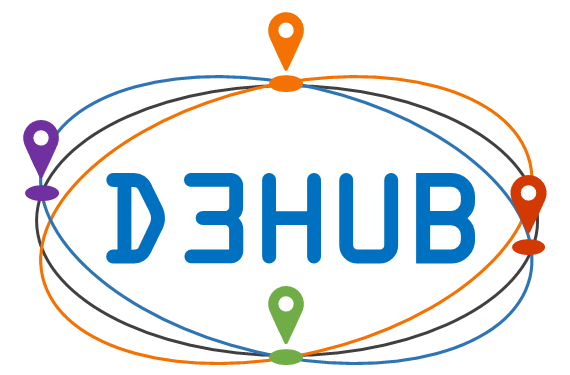By Tatiana Semenova, MITUR

Institutions play a crucial role in the success of European projects like D3HUB. Their involvement ensures that projects are well-rounded, effective, and impactful. Here’s why the role of institutions is important:
● Expertise and experience: Institutions bring a wealth of knowledge and experience to the table, providing valuable insights and expertise that shape the project’s direction and implementation.
● Resource allocation: Institutions have access to resources – both financial and human – that are essential for the execution of large-scale projects. Their support ensures that projects have the necessary funding, personnel, and infrastructure to succeed.
● Policy and regulation support: Institutions help align project goals with national and EU-level policies, ensuring that projects are compliant with regulations and can achieve broader policy objectives.
● Networking and collaboration: Institutions have established networks and relationships with key stakeholders. Their involvement facilitates collaboration, knowledge sharing, and the building of synergies across different sectors and regions.

Destination Management Organizations (DMOs): By providing local insights and data, DMOs can help tailor the Centre’s services to meet specific regional needs, ensuring that the tools and methodologies developed are practical and effective. While actively participating in the process, DMOs will benefit from the training, advice, and technological solutions provided by the Centre, enhancing their competitiveness and innovation capabilities.
Public Bodies: These entities can offer regulatory and policy support, facilitating the adoption of data-driven approaches and ensuring alignment with broader sustainability and resilience goals.
Tourism SMEs: Being an integral part of a DMO’s ecosystem, small and medium-sized enterprises will surely reap the benefits of the DMO’s involvement in the activities of the Center as well, boosting their competitiveness on the market and significantly improving their level of innovation.
Statistical Agencies and Research Centers: Institutions like Eurostat and the Joint Research Center can contribute by sharing data, methodologies, and best practices, ensuring that the Centre’s work is grounded in robust, evidence-based research.
The foundation of the European Tourism Data Space has been laid through the DATES project, which successfully created a community of over 400 entities across the EU in less than a year. Building on this momentum, the D3HUB project aims to maintain and expand this community through continuous engagement and active participation. Based on the success of the Interministerial Committee, founded within the DATES project, the D3HUB Consortium keeps working closely with the members of the Committee, in order to foster collaboration across EU Member States. This will play a crucial role in the dissemination of the project’s objectives and achievements, ensuring that the Competence Centre’s activities are well-coordinated and widely supported, and facilitating synergy creation, policy alignment and resource sharing.
If you are interested in joining this vibrant community and supporting the establishment of the European Competence Centre, register now at D3HUB Competence Centre website.
Together, with the support and active engagement of various institutions and the strategic coordination of the Interministerial Committee, we can build a more competitive, sustainable, and resilient European tourism sector.
